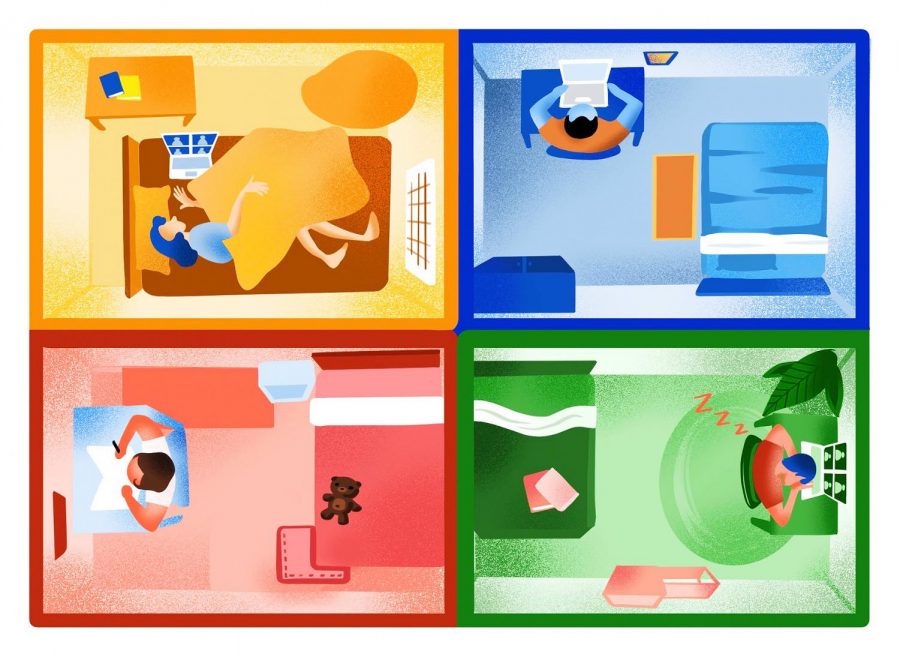Opinion: Distance learning promotes independent study habits
Last year, I did not have consistent study habits. I would procrastinate and pull all-nighters before tests, alternating between an hour of work and an hour of TikTok. I never used class time efficiently. By the time I came home after a long day of classes and water polo practices at around 7 p.m., I was too exhausted to do my work and just wanted to relax. Part of this was due to my inability to balance multiple extracurriculars and schoolwork: I had very poor time management skills and did not know how to regulate my screen time.
Distance learning turned this upside down. Although I am receiving less direct instruction from my teachers, I have benefited from classes held virtually by learning how to manage my time and work independently.
For one, my water polo practice time has been halved. Not only has this loosened up my schedule, but I am no longer physically exhausted from practice. I actually have the energy and motivation to get my work done every day. Rather than filling this free time with more distractions, I became bored of watching Netflix and scrolling through TikTok over the course of shelter-in-place. I found myself missing school and wishing for something to accomplish. As a result, when school finally started, I was eager to learn and do my work, online or not.
While attending classes and completing homework through a screen might increase the selection of online distractions, that wasn’t the case for me. In fact, my newfound interest in learning led me to develop strategies to manage my screen time. When I needed to focus, I would set a timer for about an hour and put my phone in another room. I forced myself to focus my full attention on working until the timer went off. This strategy significantly improved my work and learning efficiency, which, in turn, decreased my stress levels and gave me even more free time.
In class, I’ve found other ways to avoid distractions. One of the biggest changes that I’ve faced with the recent transition is that my teachers can’t be there to make sure that I am on task. I’m the only person controlling my success and focus in class. This has taught me to take responsibility and keep myself in line. I make sure to turn my camera on whenever I can because it forces me to sit up and look at my screen. I have also started participating more. Speaking up in breakout rooms as well as full group discussions has been a great way to channel my full attention on class activities.
Finally, online learning has also taught me how to learn independently. I understand that teachers are trying their best to lecture over Zoom, but it is still significantly harder to learn and pay attention in a virtual classroom. To compensate, I’ve discovered a variety of strategies for learning. Through trial and error, I’ve found that I absorb material best through reading the textbook and watching Youtube videos. Distance learning has led me to utilize these resources outside of class rather than asking clarifying questions to teachers in the brief moments between classes. Simply put, I’ve become a more organized, independent student.
It’s undeniable that there are numerous problems with the new virtual learning system. Many teachers struggle to fully explain concepts over Zoom. It can be intimidating to unmute and ask questions in front of the class. It’s tempting to turn cameras off and not pay attention. However, while it has its challenges, online learning prepares students for the future. Once we reach college, most of the learning is independent, and we’ll have to manage our own time and distractions. Becoming self-sufficient is essential, and if we learn how to do this now with online learning, we’ll be more successful in the long run.
Your donation will support the student journalists of Henry M. Gunn High School. Your contribution will allow us to purchase equipment and cover our annual website hosting costs.


